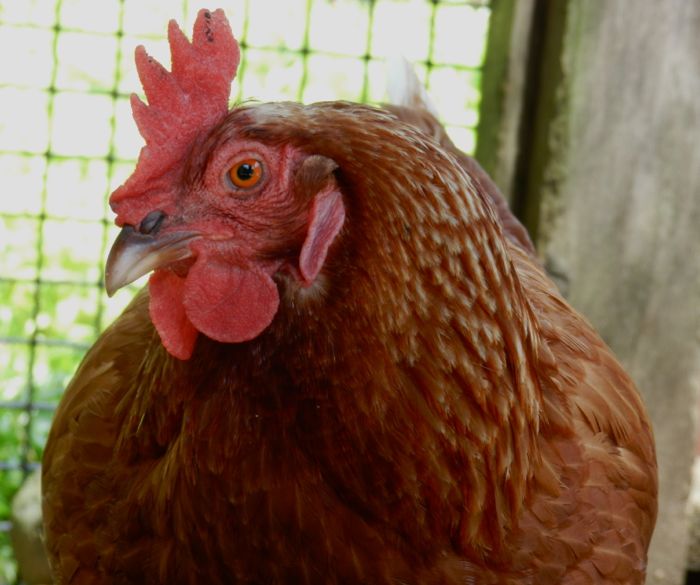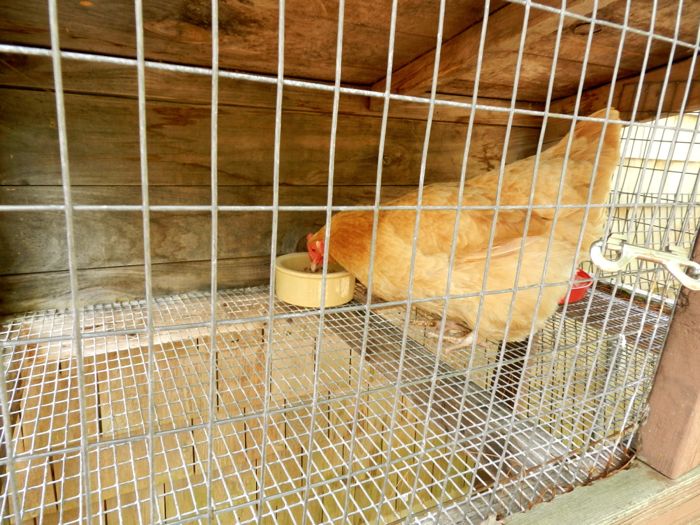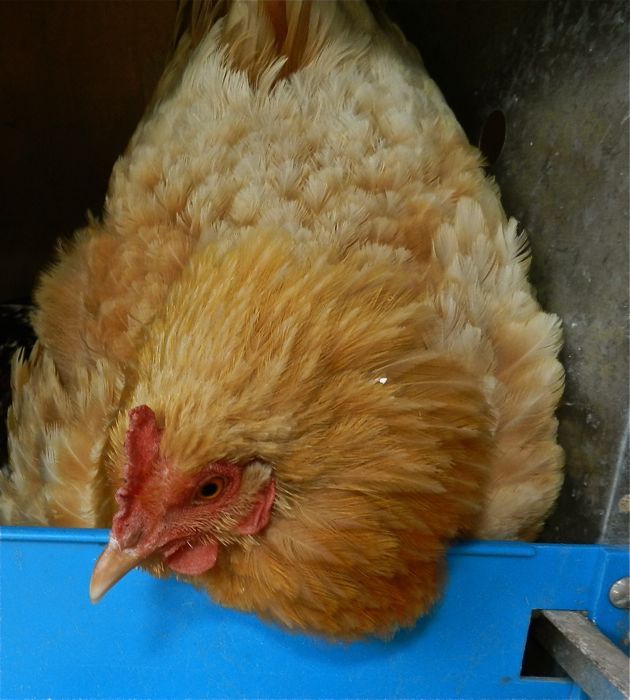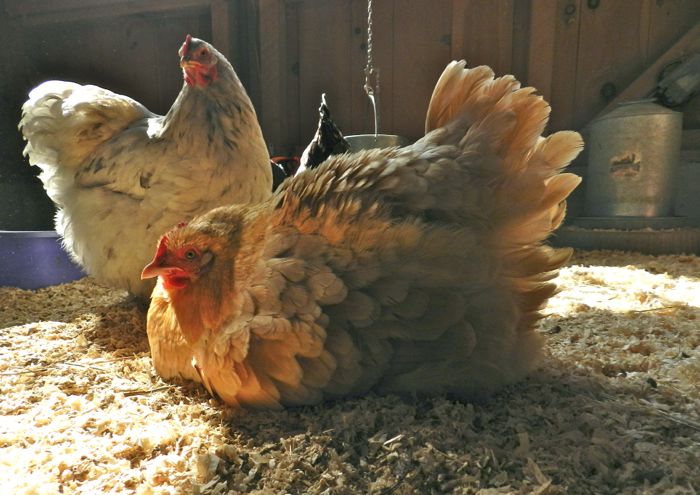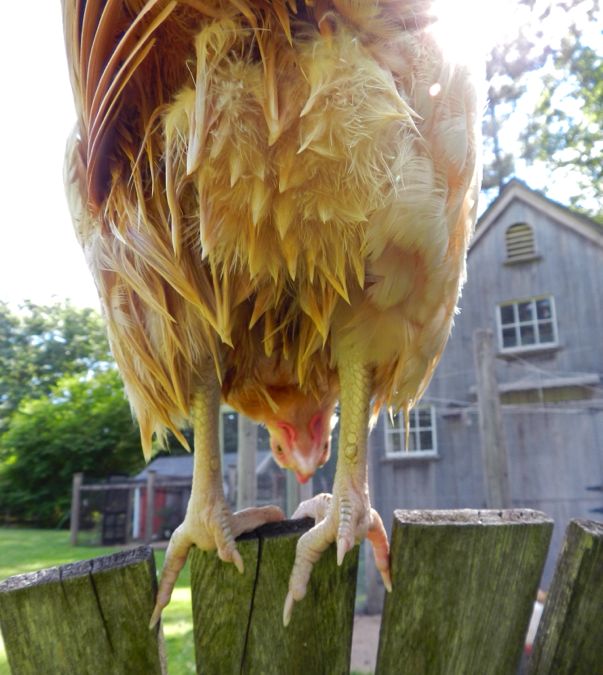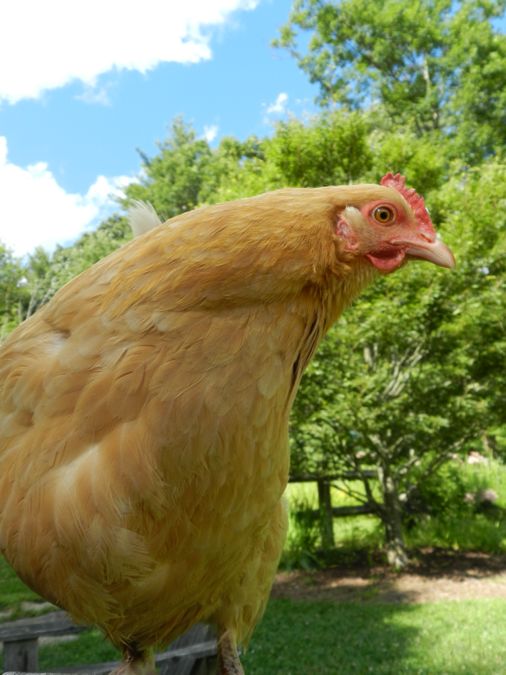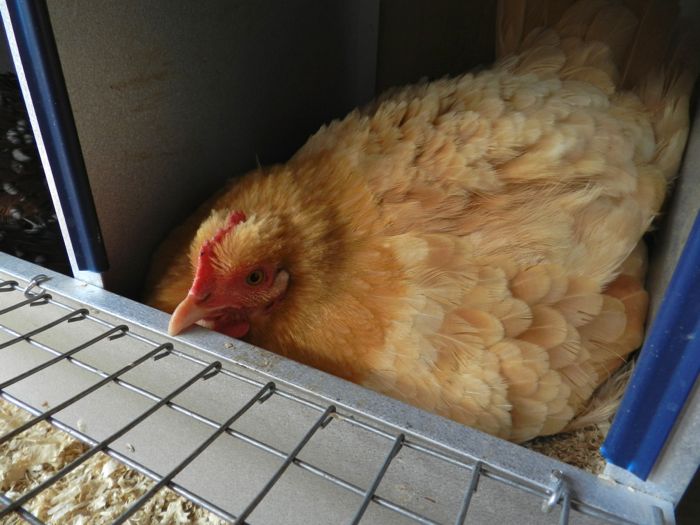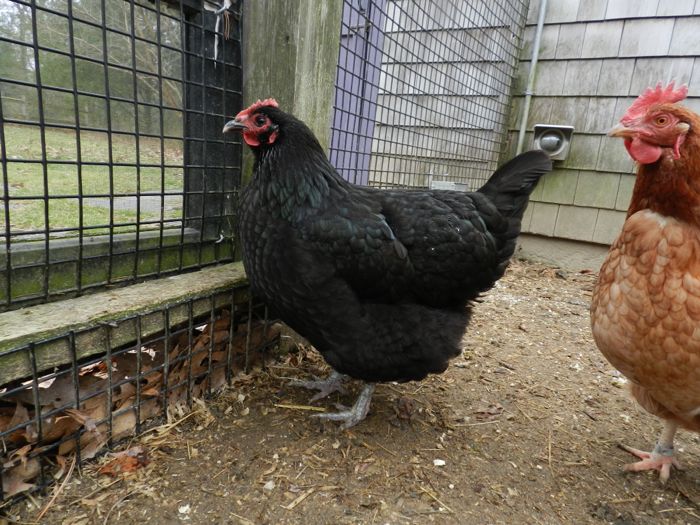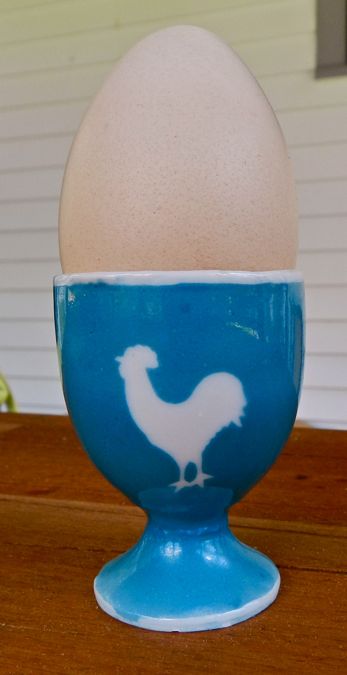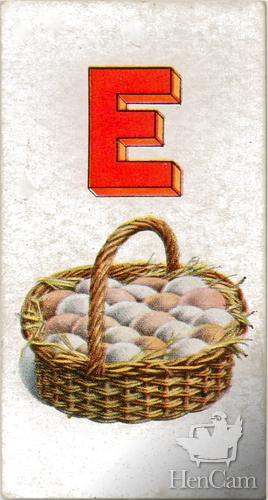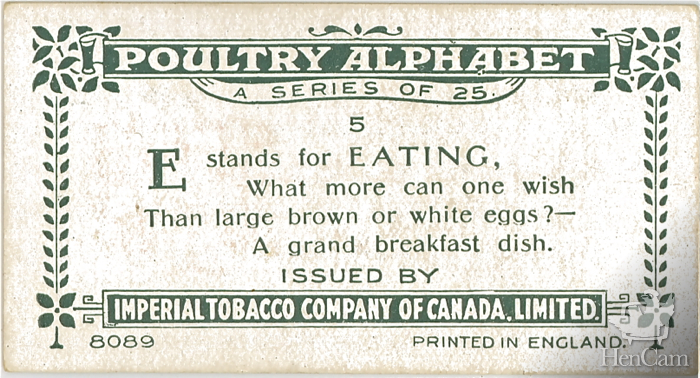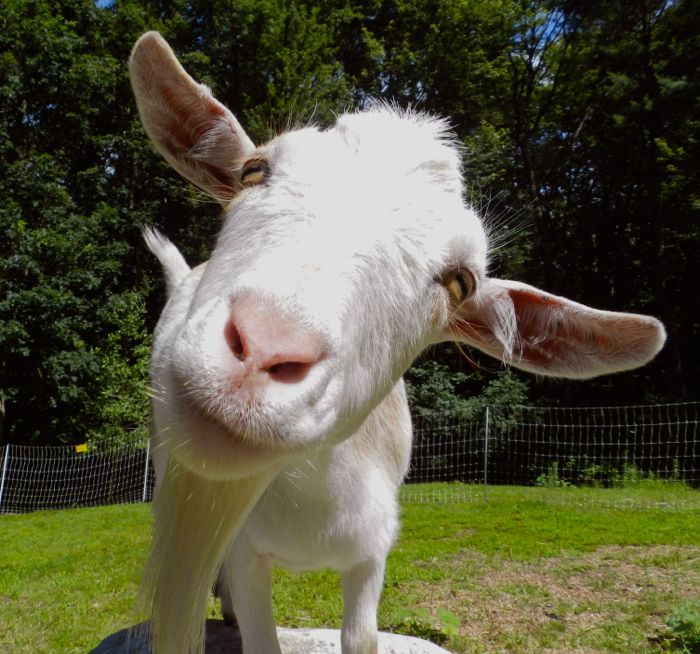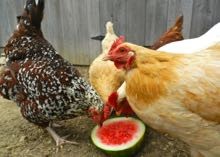Agnes had been in obvious decline for two months, but her laying days were already well over. She never resumed laying after last autumn’s molt. At three and a half years of age, she wasn’t elderly, like venerable Eleanor, but Agnes, being a hybrid (a Golden Comet) had been a highly productive layer and I assumed that she was simply worn out. Her sister, Philomena, also stopped laying. But, as summer settled in it was clear that one of the Comets was doing fine and the other was not.
In April, Agnes looked seriously ill. Her comb went from red to a dark rust color. She stood hunched. When allowed to free-range she pecked at the grass half-heartily. This was in stark contrast to her usual behavior as an active forager. I tried the Spa Treatment and it seemed to give her some relief. Her comb reddened and she perked up. But then the comb darkened again and Agnes slowed down even more.
I kept an eye on Agnes. Although it was obvious that Agnes was sick by her posture and activity level, she was still roosting. She still went out with the other hens in the morning to get a bit of sunflower seed. But, yesterday Agnes didn’t come off of the roost. Buffy needs help off of the roost, too, but this was different. Buffy’s eyes are bright and eager in the morning and she starts eating as soon as I set her down. When I put Agnes on the floor of the coop, she didn’t walk to the feeder or to the door. She just stood there. I watched her some more during the day. If you weren’t looking closely, you’d think that Agnes was eating. She pecked. But, I noticed that she wasn’t picking up food. Hens will do this. Much of their behavior is automatic. A sick hen will go through the motions. You have to be very observant to see whether she is actually ingesting anything.
In the past, I always said that I’d let my hens live their days until they die naturally. Then I started doing necropsies. What I found inside of the hens was disturbing. A chicken can live a long time with a diseased body before she shows outward signs of illness. A hen can starve to death right under your loving care. I wouldn’t let that happen to Agnes. I asked Steve to euthanize Agnes. I knew that she was suffering.
I did a necropsy. Agnes’ crop was stretched into a thin membrane and filled with brown fluid. Her intestinal tract was hardened and twisted. Nothing could get through. Her gizzard was tumorous. I don’t know how long she had been unable to digest food. I don’t know at what point in the last two months her diseased body reached the point where it went into failure, or how long she could have continued to live like that. I know that by yesterday she was suffering, but how much before that? Should I have euthanized her last week? The week before that?
I used to say that I’d know when a hen was done when she stopped roosting. Agnes proved me wrong. She was starving and yet she roosted and moved about with the flock. Now I know to watch and make sure that the ill hen is eating. When a hen looks sick, I will get out a scale and weigh her. A precipitous weight loss will be a sign that her internal organs are not functioning. I do know that I no longer think that it is a kindness to let a hen die on her own when she is obviously failing. I will not let a chicken suffer for weeks.
But, then, what of Eleanor and Edwina? They no longer scratch the ground. They no longer actively forage. But, they roost, they are social, and most importantly, they still eat with gusto. A sick hen will stand hunched, almost upright, and apart from the others. Eleanor likes to nap in the middle of the ruckus. That’s the difference.
In the past these issues never came up. For the first year, a flock of hens was kept for their eggs. By winter all of the hens were harvested for meat, except for the very best layers who were kept through to the next season. At the end of their second year of laying the two-year old hens would go into the stew pot. Those of us who get attached to our birds don’t want to eat them. We want to give our chickens a good life into their old age. The sad reality is that cancer, tumors, and major organ failures are common in older hens. It’s also true that a hen will not tell you that she’s suffering. It’s up to us to be observant, thoughtful, and compassionate. I’m still learning when the hard decision to euthanize should be made. What I do know is that it is the right thing to do.
